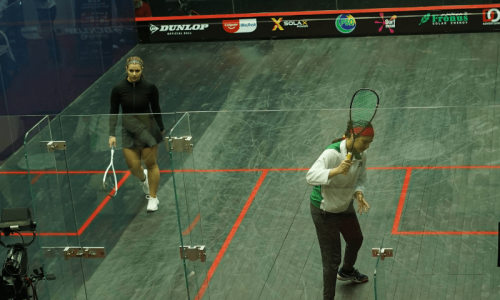LAHORE: As many as 20 former Pakistan Test players met the country’s cricket board chief Mohsin Naqvi here at a local hotel on Monday, and a number of suggestions were put forward as potential ways to fix the national side’s woes following its disastrous exit from the T20 World Cup last month.
The ex-players were invited by the Pakistan Cricket Board (PCB) chief — who had called for a “surgery” after Pakistan were stunned by minnows USA in their opener at the T20 showpiece — as his attempt to regather the mess that the sport in the country had become.
While Mohsin was looking for suggestions to improve Pakistan’s domestic cricket, the former players did not shy away from expressing their frustration over the national side’s T20 World Cup campaign.
The tournament saw Pakistan captain Babar Azam once again criticised for his approach as the leader, but his future in the role did not come under discussion in the said meeting.
However, the ex-cricketers — the likes of Intiqab Alam, Sadiq Mohammad, Iqbal Qasim, Haroon Rasheed, Salim Altaf, Sikandar Bakhat, Sarfraz Ahmed, Shafqat Rana, Rashid Khan and Wajahatullah Wasti — criticised the selection of the national squad.
One of them was of the opinion that Pakistan did not need three spinners given that the World Cup was held in the West Indies and the United States.
While others fumed over the selection of Azam Khan and Usman Khan over Abdullah Shafique and Salman Ali Agha — the latter duo, they believed, were better prospects than Azam and Usman.
One of the practical suggestions given to the chairman was that of forming a national cricket committee and including former Test players in the PCB’s Board of Governors, which currently doesn’t contain even a single Test cricketer.
Some former players suggested under-19 cricket in the country needed maximum attention and the youth level teams should have access to top-level coaches.
At the structural level, the ex-players recommended the decentralisation of domestic cricket, which would see the PCB devolve powers down to the regions and potentially save itself from pouring funds from its own reserves to run the sport at the regional level.
Interestingly, the PCB had invited the cricketers to get their suggestions for the improvement in domestic cricket.
But the board did not brief them in detail, informing them that the PCB was going to include 18 regional teams from 16 regions (one each from the 14 regions and two each from Lahore and Karachi regions) to play first-class cricket this year.
As many as 150 top performers from the regional tournaments will be selected to form five teams to play another first-class event.
Meanwhile, the PCB chief had a late-night meeting scheduled with Pakistan’s white-ball head coach Gary Kirsten and assistant coach Azhar Mahmood — both having arrived here on Monday morning.
Pakistan’s recently-appointed Test coach Jason Gillespie was also to meet Mohsin late on Monday night.
Published in Dawn, July 9th, 2024















































